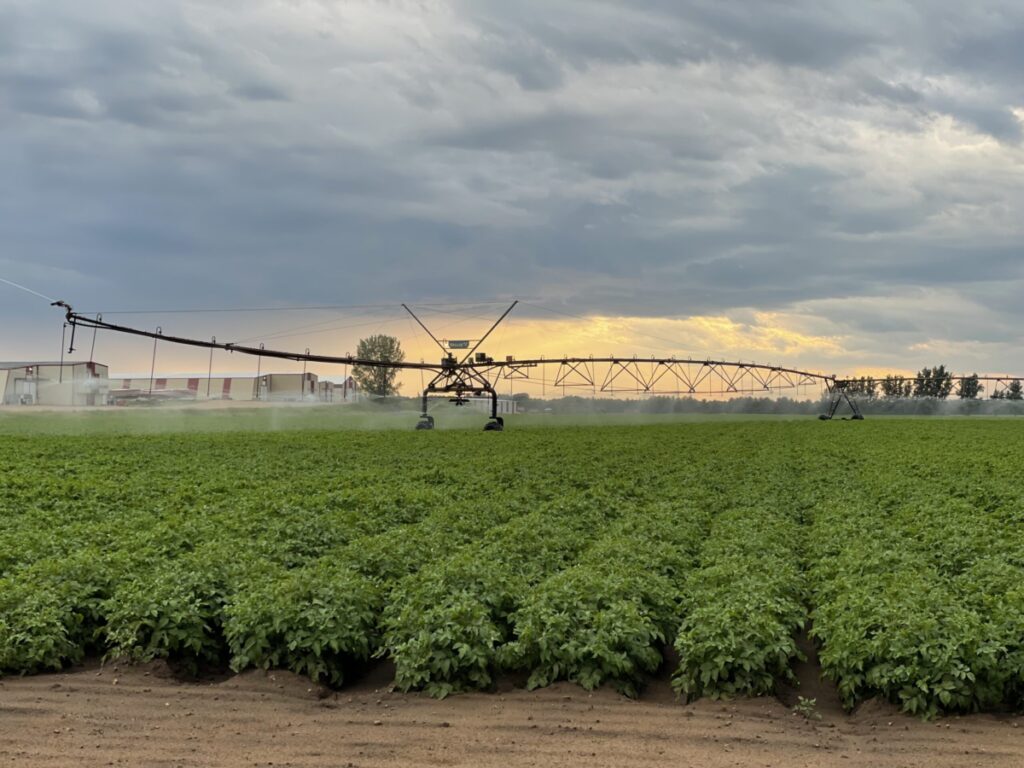
Sustainability has always been front of mind for Heartland Farms
Sustainability was a good century away from even becoming a word, much less a marketing slogan or even an economic guiding principle, when the Pavelski family founded Heartland Farms in 1873 in Hancock, Wisconsin.
The concept of sustainability as it is known today first came into use in 1972. But for the Pavelski family, which emigrated to Wisconsin from Poland, being proactive conservators of the land has always been part and parcel of its approach to farming.
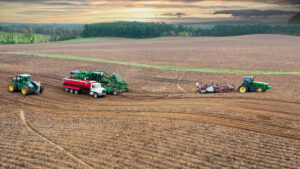
Nearly a quarter of the way through the 21st century, Heartland Farms now boasts about 27,000 irrigated acres of chipping potatoes, canning peas, green beans, sweet corn and soybeans. Owner Richard Pavelski said that the farm is dedicated to sustainability and best management practices.
“We want to use less energy and less water and produce higher yields and better quality,” he said. “Technology lets us do that. It gives us access to more information more quickly, and that lets us react to growing conditions in a more efficient way.”
Irrigation systems
For example, Pavelski said, using real-time rain gauges and variable-rate irrigation in the field lets Heartland personnel react to rainfall as it happens.
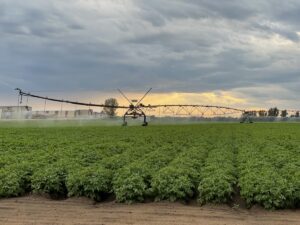
In any rain event, part of a 160-acre field might get half an inch of rain, while another part gets three inches. Real-time rain gauges with remote controls lets staff turn off sprinklers without having to drive out to the fields, reducing water use and saving wear and tear on equipment.
“In our operations, that can reduce reaction time by two hours, which can equate to a savings of 18 million gallons of water per rainfall event,” Pavelski said.
Heartland also has seen savings in water use by using low-pressure irrigation systems.
“Just 10 years ago, most systems were high pressure,” Pavelski said. “Water was delivered at 70-80 psi (pounds per square inch), plus it would take a 100-horsepower motor to put enough water out there for a quarter section at 1,000 gallons a minute. Now we’ve gone to low pressure, and we’re doing that with 50 horsepower or less.
“When you add a variable rate drive to that system, we’ve got our energy consumption down to 30% to 35% of what it was 10 years ago.”
Moreover, new multispectral and hyperspectral cameras, flown over fields using drones, can spot potato leaf blight up to three to four days before the disease is visible to the human eye. This lets Heartland personnel react to the disease before it takes over an entire field. That lets workers spot treat the disease, reducing chemical use and improving its effectiveness.
Technological edge
One of the benefits of exploring technology is that judicious use in one area can turn up benefits in others. For example, more efficient water use can do more than just reduce input costs. It can also reduce both soil erosion and the application of treatments, Pavelski said.
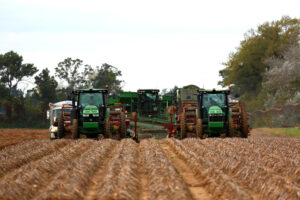
“We work hard to build up our soil — one of our most precious natural resources — and we don’t want to lose it,” he said. “This even helps reduce maintenance costs on vehicles that no longer need to travel to the field as often.”
Implementing new technology also helps Heartland train its personnel.
“It provides feedback to new employees and their supervisors, so effective coaching and development is administered at the right times for the right things,” he said. “This reduces the time needed to get new team members skilled and productive in the field.”
Heartland’s new company, Top Tier Ingredients LLC, launched in March 2022 with the construction of a potato dehydration line that went online in December. The new line benefits both Heartland and neighboring farms, as potato flakes and flour are widely used in gluten-free products, and the facility’s proximity to major population centers ensure a broader market.
The new line is part of a sustainable solution for potato operations, reducing carbon emissions per pound of potatoes by removing waste and water at the farm level, which, according to Pavelski, reduces the amount of trucks on the road by three quarters. This solution not only saves transportation costs but also reduces the environmental impact.
Top Tier Ingredients LLC’s new potato dehydration line produces premium products and promotes sustainable agricultural practices, ensuring that every potato reaches the right market and increases the quality of all segments of the potato industry. It also reduces carbon emissions per pound of potatoes grown.
Future focus
Sustainability, what it means and how farms have incorporated it into their operations has changed a lot since 1972, and it has led to improvements throughout Heartland’s operations. For example, use of GPS technology has evolved from just location identification to include implementing steering assistance, which increases product application accuracy and reduces equipment drift.
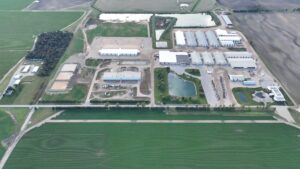
“The real benefit in the long run is being able to combine precise GPS location information with other technologies coming down the pipeline,” Pavelski said. “Whether that is drones for spot spraying or hyper spectral imagery which can help identify pest, nutrient and water issues, stacking technology is what will provide the real benefit, and then using modern technology, including AI, combined with real-world experience of team members.”
Pavelski said that the family farm will continue to play an important role in American agriculture, and that sustainable practices will drive the success of its workers.
“They will have to continue to evolve and to master their knowledge of
new technology,” Pavelski said. “Have fun! This is the most important part, because if you are not having fun doing it, it will be hard to succeed.
“Farming is challenging … period. Invest in yourself, your team, knowledge and technology.”







